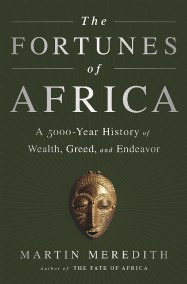By clicking “Accept,” you agree to the use of cookies and similar technologies on your device as set forth in our Cookie Policy and our Privacy Policy. Please note that certain cookies are essential for this website to function properly and do not require user consent to be deployed.
Eaters Of The Dry Season
Circular Labor Migration In The West African Sahel
Contributors
By David Rain
Formats and Prices
Price
$43.00Format
Format:
Trade Paperback $43.00Also available from:
In this illuminating new work on the geography of poverty, David Rain dispels the notion that relentless human mobility is a byproduct of Western technological advances like superhighways and airports. Instead, it is much older and more deeply ingrained in the human spirit. Every year after the rainy season ends in the arid West African Sahel, hundreds of thousands of men and women leave their villages to work in the informal economies of West African cities. The seasonal flux of peasants swells urban markets and neighborhoods, as it has for centuries. These migrants, called masu cin rani in Hausa, or “those who eat the dry season,” travel after their crops are harvested in order to conserve household food supplies and earn money which is funneled back to their villages of origin. These “eaters” come from all walks of life, though they are more commonly poor and living by their wits.This book focuses on the activities of the seasonal migrants, persisting as they have through colonial and postcolonial changes, and constituting an important response to uncertainty in the region. Based on a combination of survey-interviews and geographic analysis, the book regards the migrants as practical people who are simply making the best of what has been dealt to them. Contextual andpanoramic, and centered on the immediacy of daily and seasonal routines, Eaters of the Dry Season delves deeper than typical alarmist accounts of African drought and famine, which are all too common in current literature. It will challenge laypeople as well as scholars and policymakers to consider how actual people respond to global changes in the next century, especially for the billions who are labeled “poor.” Unraveling the dynamics behind population, environment, and poverty requires us to set our sights on the intersection of the human and the physical realms, and to enter the worlds inhabited by the poor.
Genre:
- On Sale
- Jan 19, 2001
- Page Count
- 280 pages
- Publisher
- Avalon Publishing
- ISBN-13
- 9780813338729
Newsletter Signup
By clicking ‘Sign Up,’ I acknowledge that I have read and agree to Hachette Book Group’s Privacy Policy and Terms of Use







